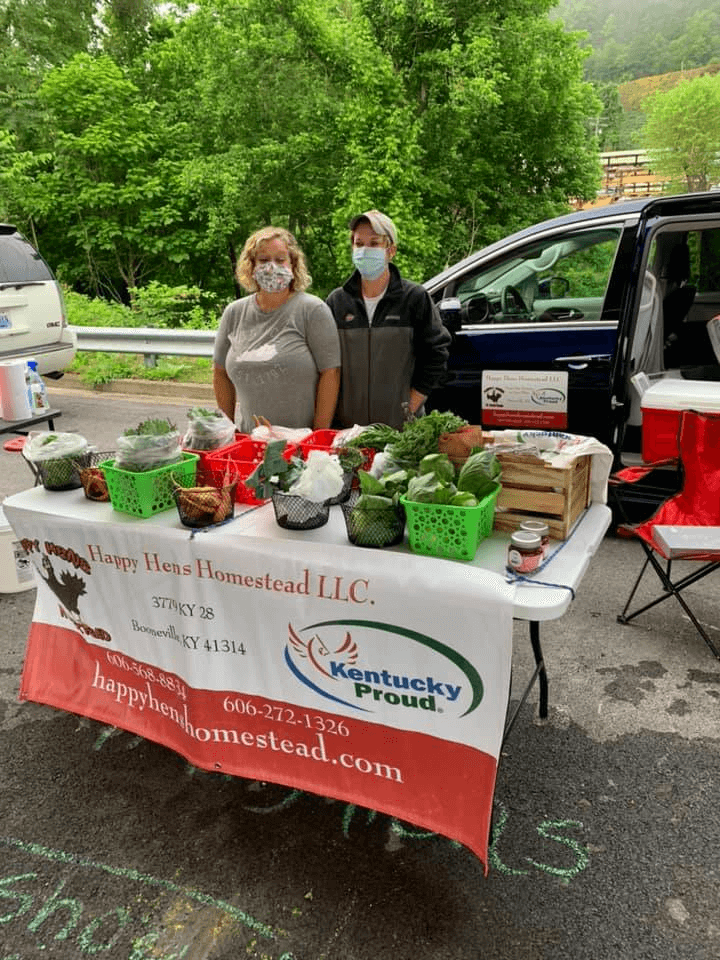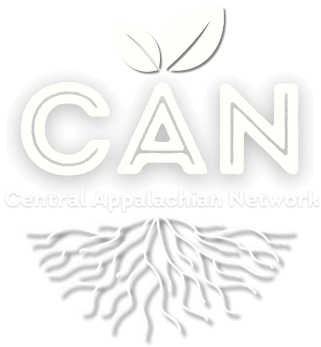
Federal Pandemic Aid Hasn’t Reached Most Kentucky Farmers
The COVID-19 pandemic has exposed the fragilities of our food system. The pandemic has stretched or broken the value chains that bring food from the farm to our plates. Changes in health and safety guidelines and changes in consumer demand has put additional stress on Kentucky farmers, especially small-scale farmers and farmers of color, because of the need to adapt and respond.
The U.S. Department of Agriculture’s (USDA) Coronavirus Food Assistance Program (CFAP) is intended to help farmers recover from losses related to COVID-19. The CFAP program has been largely inaccessible for direct market, small-scale, and specialty crop producers, who are the fastest-growing segment of agriculture according to the Farm Service Agency. These farmers often receive premium prices for their products and the CFAP valuation formula undercuts the value of these products. Through CFAP, the USDA is only paying a penny per pound for potatoes and as low as seven cents per pound for lettuce, both of which are well below the direct market value. The long and tedious application process coupled with extremely low CFAP payments has discouraged these struggling producers from seeking federal assistance.
78% of Kentucky’s farmers make less than $25,000 per year, leaving many small- and mid-sized farming operations dependent upon outside income to maintain their small business. The COVID crisis has magnified the economic instability and strain facing family farmers; without financial assistance, many farms may not survive this crisis. The good news is that of Kentucky’s 76,000 farms, 23,000 have managed to tap the Coronavirus Food Assistance Program.
The bad news is that 70% of Kentucky’s farmers remain struggling.
To fill the gap, Community Farm Alliance (CFA) has partnered with funders (Farm Aid, the Foundation for Appalachian Kentucky, and the Appalachian Impact Fund) and other organizations, including Black Soil, to help launch both the Central Appalachian Family Farm Fund and the Kentucky Black Farmer Fund to help offset some of the economic impacts the pandemic was causing for our most vulnerable farmers. These funds, including donations from fellow Kentuckians, provide one-time payments of up to $750 in assistance to small-scale farmers who have lost sales or markets as a result of the pandemic. Thus far, the Kentucky Black Farmer Fund has allocated over $45,000 to 52 farms and the Central Appalachian Family Farm Fund has allocated over $103,000 to 138 farms. These grants are investments to keep Kentucky’s local food system strong.
All applicants had some striking similarities. Most of them are producing vegetables and livestock, for direct to consumer sales. Over half of all applicants have ten or more years of farming experience and just under half are actively farming less than five acres. The most frequently cited COVID-19 impacts to their farms include closed sales venues and delayed market openings along with canceled farm events, low livestock prices, increased operating costs, decreased sales, and the inability to access federal help.
With the uncertainty of their local farmers market opening this year, Happy Hens Homestead in Owsley County, Kentucky had to quickly adjust their operations. This spring, they accrued added expenses to keep their operation running and safe like a cool room, coolers, and personal protective equipment. Lindsey Stevens of Happy Hens Homestead shared that “the amount of hoops a small scale farmer needs to jump through to receive relief funds, just to stay afloat during these times is intimidating and disturbing. To subsidize large scale producers for products that will be further subsidized at the box store, leaves small farmers gasping for air in a pool of red tape.”
CFA knows that by investing in our small-scale farmers during this pandemic, we are preserving our state’s farming heritage while keeping Kentucky’s food supply local and safe. Our work has pivoted to meet the needs of farmers and eaters during this time. With foundation, individual, and other support, we have put almost $155,000 directly into the hands of Kentucky farmers—but it comes nowhere close to addressing the need that still remains. As Congress attempts to address the ongoing pandemic through additional aid, now is the time to address the inequity of CFAP relief for small-scale family farmers, especially farmers of color.
Agriculture in our country has roots of oppression and exploitation, and Black, Indigenous, Latinx, and Asian farmers have been specifically and repeatedly disenfranchised and discriminated against.
Black farmers, in particular, have been historically discriminated against by the USDA, through being denied and cheated out of farm loans and assistance, which is a large reason why there are so few Black-owned farms today. The Pigford vs. Glickman case was a class-action lawsuit against the USDA for discrimination against Black farmers during the 1980s and ’90s. This is the largest civil rights settlement to date and it still didn’t come close to compensating the involved farmers for their loss. These patterns have caused mistrust and apprehension from future generations to even seek assistance from a federal level.
Michael Collins with Heartgrounds Farm LLC in Shelby County, Kentucky shared this apprehension of applying for federal aid. “I never have applied to USDA funds for COVID relief, I just assumed I wouldn’t qualify,” says Michael. “The application is so complicated, and the one thing you mess up could disqualify you, when we may be passed on regardless, so I don’t even try.”
Small-scale farms are the backbone of our country’s agricultural system, and the COVID-19 pandemic has sparked a large boost in consumer support for local food. It is imperative that these farmers receive the assistance and support they need to keep producing food for their communities. It is vital that we raise our voice and encourage our representatives to support small-scale farmers.
Please call your U.S. House Representative at 202-224-3121 and ask them to cosponsor H.R. 8096: The Local and Regional Farmer and Market Support Act, which would address some of these issues. Please call Senators McConnell and Paul at 202-224-3121 and ask them to address the inaccessibility of CFAP funding for direct market, small-scale, and specialty crop producers, and provide support for these producers as the USDA revises the CFAP program for a second-round and as Congress continues to work on additional coronavirus assistance packages.
Note: Happy Hens Homestead was a recipient of the Central Appalachian Family Farm Fund. Heartgrounds Farm LLC was a recipient of the Kentucky Black Farmer Fund.
Attachments:
- Image: HappyHens2020Market Caption: Lindsey & Andee Stevens of Happy Hens Homestead
- Image: HeartgroundsFarm Caption: Michael Collins (left) of Heartgrounds Farm LLC
Contacts:
Kelsey Voit, CFA Organizing Director | kelsey@cfaky.org
Maggie Smith, CFA Communications Director | maggie@cfaky.org
